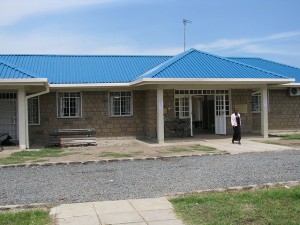Will Open Data Give Rise to Great Stuff?
There’s a health center in my village. I don’t know how many health care workers have been assigned to it, how much money it was allocated in the last fiscal year, how many people it serves or who’s in charge. I don’t know what the mortality rate is in my county or how we measure up when compared to the neighboring counties. If nothing changes, I probably never will.
I am, however, an optimist. Something will change. It’s starting with the Kenyan government launching its open data initiative on the 8th of July, 2011 in Nairobi. In the run up to the launch, the government released data sets to local software developers who developed web/mobile apps that turn those data sets into information which can be consumed by the public. I haven’t seen any yet but I am sure they will not disappoint.
By providing these data sets to the public, the government makes it easier to access public sector data without jumping through the hoops that exist in different government departments. For instance, from an online source, I could access Ministry of Finance data on budgetary allocations to government ministries, Ministry of Medical Services data on health care infrastructure, Ministry of Planning census data and layer this onto a map. Members of the public would then easily visualize how government resource allocations relating to health care infrastructure distribution affect mortality/morbidity and quality of life in their locality allowing them to draw conclusions on the performance of departments or the policies government has in place.
Here’s a scary thought. This open data initiative could fail. It’s a scary but highly probably outcome. Open data is about people. Starting there and working our way onto websites and mobile phones is a great way to ensure we create great stuff with open data. However, if we fail to put humans first, failure will be guaranteed. In addition to cuts in government spending on open data initiatives, I can think of three other factors that could contribute to the failure of open data initiatives in the long term:
- No Edible Stuff. Open data is difficult to consume in its raw form. A member of the general public may not be inspired enough to pore through spreadsheets and tables looking for patterns and creating fancy graphs. If nothing is built to process the data into ‘edible’ information, the initiative will definitely come to nought. Whereas we can count on government departments processing and presenting this information to us as they have done in the past, this information will be from their departmental silos and mostly presented without additional context from other departments. Great and truly ‘edible’ apps on open data will most probably be citizen developed. I suspect we might not need to worry about this one.
- No Relevant Stuff. We don’t eat rodents in my neighborhood. Even the exotic type called Capybara. And yet, they ARE edible. Contextually, this ‘edibility’ is irrelevant to my people. If we build fancy websites and mobile apps that address what people don’t care about, no one will look at it. It will be akin to serving fried Capybara in East Africa. There will be very few takers. Use the data to build relevant stuff and the public will gorge on it.
- No Interactive Stuff. Human beings generally prefer talking to other human beings. Talking to a wall, an answering machine or a piece of software doesn’t scale. Herein lies the biggest challenge and the least unique. It’s the same challenge that nags community policing initiatives, corruption crusaders and public health workers. How do we get humans to engage with the data, other humans and amplify their opinions and interactions? Create edible and relevant stuff humans can work with and which inspire action in offline life. Interactive stuff brings action and life to open data.
So will Kenya’s open data initiative give rise to great stuff? I am an optimist, I think it will. What do you think (about open data not my optimism)?
TweetRelated posts:
